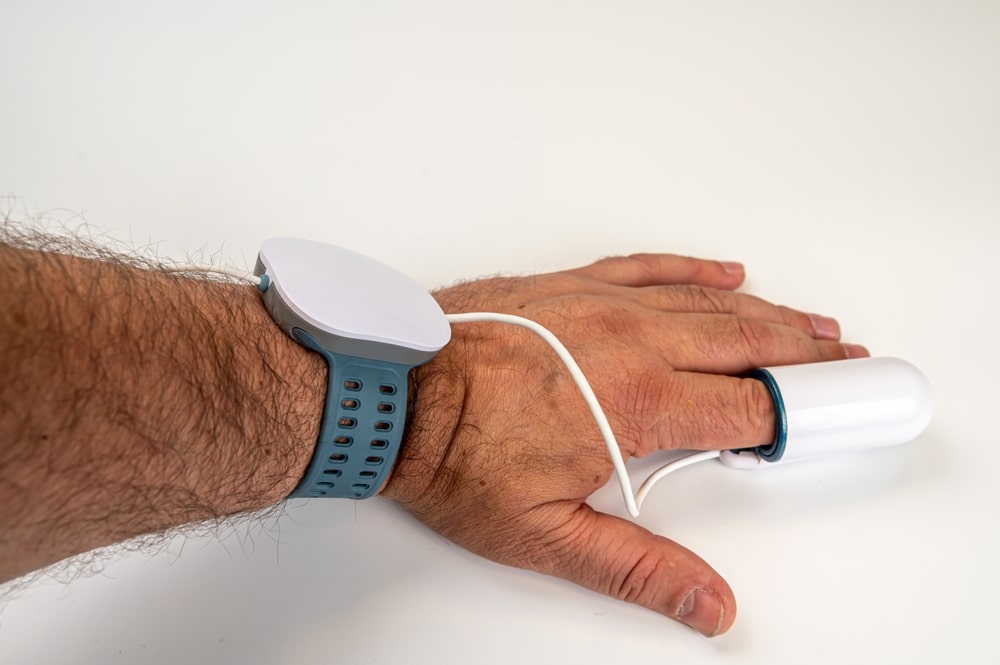
Sleep Studies: What are They and When to Know if You Need One
If you have potential problems with your sleep, your doctor may suggest a sleep study. This is a common, non-invasive diagnostic test that allows healthcare providers to monitor your sleep. This post will explore what a sleep study is, why you might need one, and what to expect.
What are Sleep Studies?
Another term for a sleep study is polysomnogram. As mentioned before, this is a diagnostic test designed to monitor your sleep. .
All of this information gives a clear picture of the quality of your sleep.
How Does a Sleep Study Work?
A sleep study involves multiple sensors to track different body systems. These are:
-
EEG (Electroencephalogram) - this involves sensors that stick to your head while you sleep. They record the electrical activity of your brain while you sleep. During sleep, you have different wave patterns, and working out what wave patterns you experience can be very useful diagnostically.
-
EKG (Electrocardiogram) - this involves a sensor on your chest that picks up the electrical activity of your heart to detect any potential issues with your heart rhythm while you sleep.
-
EMG (Electromyogram) - this involves multiple sensors on your skin that track muscle movement. They don’t activate any muscles, but only monitor when and how your muscles move during sleep.
-
EOG (electro-oculogram) - some sleep studies involve sensors that are attached near your eyes to detect how your eyes move during sleep.
-
Breathing sensors and RIP belt - breathing sensors are placed on your mouth and nose to detect air movement, while the RIP (Respiratory inductive plethysmograph) belt monitors how your chest expands while you breathe. These sensors track your breathing through the night.
-
Pulse oximeter - a small sensor is attached to your index finger to read your pulse and the amount of oxygen in your blood.
-
Video and audio monitoring - You’re also recorded while you sleep so, if healthcare providers notice unusual readings, they can see and hear what’s happening.
Do I Need a Sleep Study?
A sleep study isn’t designed to treat any health problems, but it can be incredibly helpful diagnostically. If you experience any symptoms of conditions that can be related to your sleep or that impact your sleep, your doctor might recommend a sleep study to determine or rule out these health problems.
Common symptoms of a sleep disorder or an illness that affects your sleep are excessive fatigue, lethargy, or sleeplessness. A sleep study is a fairly comprehensive test, so it can be very helpful. These are some of the most common conditions that can be diagnosed or ruled out with a sleep study:
- Sleep apnea
- Insomnia
- Restless legs syndrome and other periodic limb movement disorders
- Narcolepsy
- Sleep paralysis
- Night terrors
- Nocturnal panic attacks
- Sleep walking
- Other parasomnias or sleep disorders
- Epilepsy and other seizure conditions
Without a sleep study, you might not be able to get a reliable diagnosis for these conditions, which means that you can’t get the treatment you need. If your doctor recommends a sleep study, you should go along with it.
Sleep is far more important than most people realize and, unless you have a persistent problem with your sleep, you might not know how severe a sleep disorder can be. Sleep apnea, for example, is a common condition where you periodically stop breathing during sleep. This can be potentially deadly if undiagnosed and untreated.
Other sleep disorders might cause excessive fatigue and poor quality sleep, which leads to cognitive impairment, poor mood, and health problems. If you have epilepsy or a seizure disorder exacerbated by poor sleep, you might be more likely to have seizures if your sleep problems go untreated.
How to Prepare for a Sleep Study
Ideally, a sleep study will follow your normal sleep schedule, which means that you will have a whole night’s sleep recorded and monitored. This means that you should treat it as though it’s like any other overnight stay away from home.
Pack an overnight bag with sleepwear, other clothes, medications that you take each day, and hygienic essentials like a toothbrush and toothpaste. If you need to pack anything specific, your healthcare provider will tell you in advance.
It’s also a good idea to bring something to keep you occupied when you’re awake, like a book or a tablet. If you wear makeup, bring a makeup remover. Avoid using any topical creams or hair care products.
You should shower before the sleep study so that your skin and hair are as clean as possible. This makes it easier for the sensors to be attached to you with the adhesive gel. If you have skin allergies, let your healthcare provider know.
On the day of your sleep study, avoid caffeine and alcohol and don’t nap during the day. This means you’re more likely to get a good night’s sleep. Otherwise, go about your day as normal.
What to Expect During a Sleep Study
Once you get to the hospital or sleep lab, the healthcare providers will take you to your room. There, you can change into your pajamas and the staff will attach the sensors to your body. You might need to do a few tests to make sure they’re properly functioning.
The wires should allow you to move around in bed. It might feel strange at first, but you will get used to the sensors being attached to your body. They aren’t too uncomfortable. If you do need to move further, someone may need to unplug the wires for you.
You should try to relax before going to sleep. You might not sleep as well as normal during a study, but the results should be fine. You will generally be left alone unless a sensor becomes loose or you have a medical emergency like a seizure in your sleep.
After a Sleep Study
Depending on what the study is for, you may need to stick around for further sleep tests the next day. In most cases, however, the staff will remove your sensors and you can change and leave. The healthcare professional will tell you if there’s anything else to expect in your sleep study.
After the study, the data will be reviewed and analysed to get a better understanding of how you sleep. Your healthcare provider will then give you the results at your next follow up appointment.
